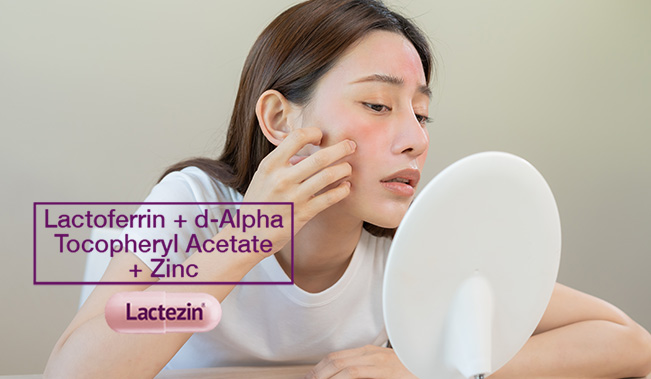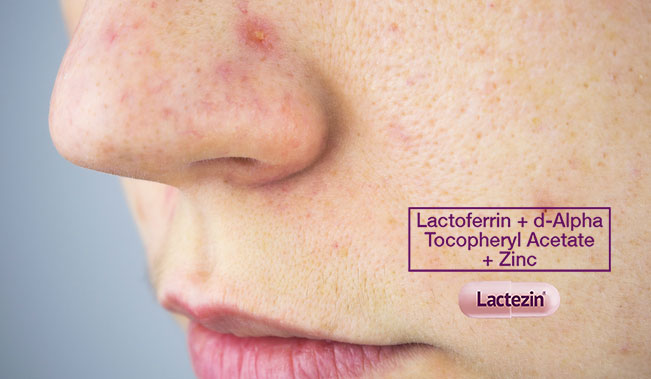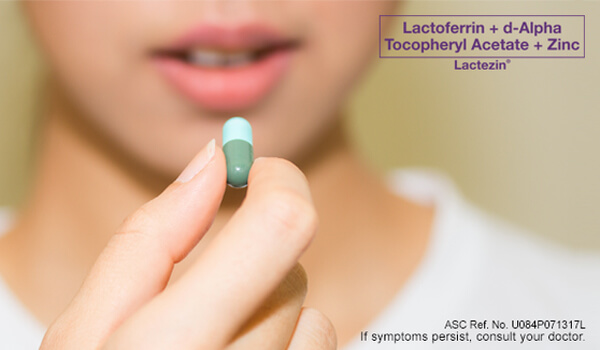How to Treat Dry Skin Before It Leads to Acne Breakout

Dry skin is a common condition that can be both bothersome and difficult to treat. Surprisingly, if left untreated, it can lead to more serious skin issues like flaking, scaling and breakouts.
Can dry skin cause acne? Yes, dry skin can cause breakouts too. Unfortunately, so many standard acne treatments are designed only to treat acne caused by oiliness. Worse, people tend to overlook acne caused by dry skin. This makes dealing with the condition extra challenging.
Are you troubled with dry skin and acne? Then perhaps this short read is for you. We'll show you how to treat dry skin so your skin becomes less susceptible to breakouts.
How Does Dry Skin Cause Acne
Isn't acne only caused by an excess of sebum or oil in the skin? Absolutely not. Although acne is commonly associated with oily skin, it can also appear on dry skin. Still don't see the connection between acne and dry skin?
The following are some of the reasons why dry skin can cause acne:
- Dry Skin Leads to More Oil Production
Dry skin is not a direct cause of acne, but it can stimulate the production of more sebum or oil in your skin. How does that happen? When the skin lacks moisture, it signals the oil glands to produce more oil. The pores then tend to be filled up with sebum and dead skin cells.
These dead cells cause pores to open, allowing acne-causing bacteria to penetrate deeper into the skin. The result is a never-ending cycle of dry skin and acne.
- Treatments For Dry Skin Cause Breakouts
There are two ways you can get acne from dry skin. The first one mentioned is about excessive oil production. The second one involves the way you treat your dry skin. You may not be aware of it, but your recent trip to the beauty store may even cause more problems than solutions to your dry skin.
Because you want to eliminate the dryness and flakiness of your skin, you tend to put on excessive amounts of moisturizers. You may even find “ten-step skin care” routines online. As much as you may think that it helps you restore moisture on your skin, in the end, you may only be blocking your pores.
Too much moisturizer remains on the surface of your face when you over-moisturize. This excess moisturizer will eventually fill your pores because it has nowhere else to go. When your pores are clogged, you become prone to whiteheads, blackheads, and pimples.
- Soaps and Detergents Contain Surfactants
You should not just invest in hypo-allergenic skin care. You also need to choose Household products* / Fabrics cleaners that are mild to the skin. Make sure that your soaps and laundry detergents don’t have surfactants. What are surfactants? These are ingredients that help products like soap and detergents produce foam. They also remove dirt and oil and even preserve cosmetics’ shelf life.
Unfortunately, most soaps and detergents contain harsh surfactants that remove oils and strip away moisture, causing dry skin. Harsh surfactants in cleansers can harm skin proteins and lipids (skin's natural fats). Lipids help the skin retain moisture, protect it from damage, and keep dirt and impurities out. As the lipids in the body decrease, the skin becomes sore, dehydrated, and irritated.
How To Reduce Acne Caused By Dry Skin:
- Use Non-Comedogenic Moisturizers.
A comedone develops when the pore becomes congested. Comedones are usually formed from oil-based products. They can be caused by a variety of factors, including the skin's moisturizer residue, shedding skin, foundation, or other cosmetics trapped in the pores. Use Non-comedogenic moisturizers that are not oil-based. They are light to the skin and will not cause clogged pores. This product is an ideal substitute for those with pimples and other skin problems.
- Simplify Your Skin Care Routine
Don't spend too much time in the restroom. Bathing for an extended period may deplete your body's natural moisture. And, you know what happens to your skin when it dries out. Oil imbalances happen.
When you have dry skin, the key is to simplify your skincare routine. Scrubbing your skin can cause acne to flare up. Use a gentle cleanser instead. Once a day, wash your face to remove dirt, oil, and bacteria.
- Veer Away From Using Exfoliants
Regrettably, many acne treatments are also drying and stripping. Avoid using retinoids (which reduces fine lines by causing the skin to peel) and salicylic acid (which can remove too much oil from the skin) when you have dry skin. While both treatments work great on oily to normal skin, they can cause dry skin to be dry and flaky.These products tend to damage the moisture barrier of your skin. When this happens, the skin forms openings that allow moisture to evaporate and irritants to enter more easily. These openings cause the skin to become tight, sensitive, and flaky.
Getting Help From Your Physician
When acne and dryness appear simultaneously, a change in your skincare routine that includes gentle cleansers and hydrating skincare products can help keep your skin in check. When in doubt, consult a healthcare professional who can tailor a skincare treatment plan to your specific needs. Your physician may ask you to include oral supplements in your regular skincare routine to help with your dry acne.
Choose Lactoferrin + d-Alpha Tocopheryl Acetate + Zinc (Lactezin).
Lactoferrin + d-Alpha Tocopheryl Acetate + Zinc (Lactezin) together with proper diet and exercise, Lactoferrin + d-Alpha Tocopheryl Acetate + Zinc (Lactezin) may help address and prevent pimples when taken two times daily for at least two weeks.
Lactezin has three main ingredients working together to help address acne and restore skin health:
- Lactoferrin: An iron-binding protein, lactoferrin assists in reducing sebum production and inflammation by way of its anti-inflammatory properties. It also has antibacterial capabilities that help fight pimple-causing bacteria. Lastly, lactoferrin may aid in improving immune function and repairing damaged skin cells.
- Vitamin E: This antioxidant assists in retaining skin’s natural moisture while preventing dryness. It helps maintain good skin cell health and combat damage caused by free radicals and UV rays.
- Zinc: This ingredient regulates oil production to improve skin’s overall appearance and aid in healing your skin. Plus, it has immune-boosting and anti-inflammatory properties.
Don’t let dry skin and acne stand in your way. Let Lactoferrin + d-Alpha Tocopheryl Acetate + Zinc (Lactezin) help you improve your skin from within.
Lactoferrin + d-Alpha Tocopheryl Acetate + Zinc (Lactezin) is available in drugstores nationwide, and online on the ULSSI webstore, Shopee And Lazada.
If symptoms persist, consult your doctor.
ASC REFERENCE NO. U082P102622LS
SOURCES:
https://eternaldermatology.com/can-dry-skin-cause-acne/
https://www.webmd.com/skin-problems-and-treatments/dry-skin
https://www.aad.org/public/diseases/acne/skin-care/habits-stop
https://www.sciencedirect.com/topics/chemistry/surfactant
https://www.healthline.com/health/beauty-skin-care/non-comedogenic
https://www.medicalnewstoday.com/articles/dry-skin-and-acne


